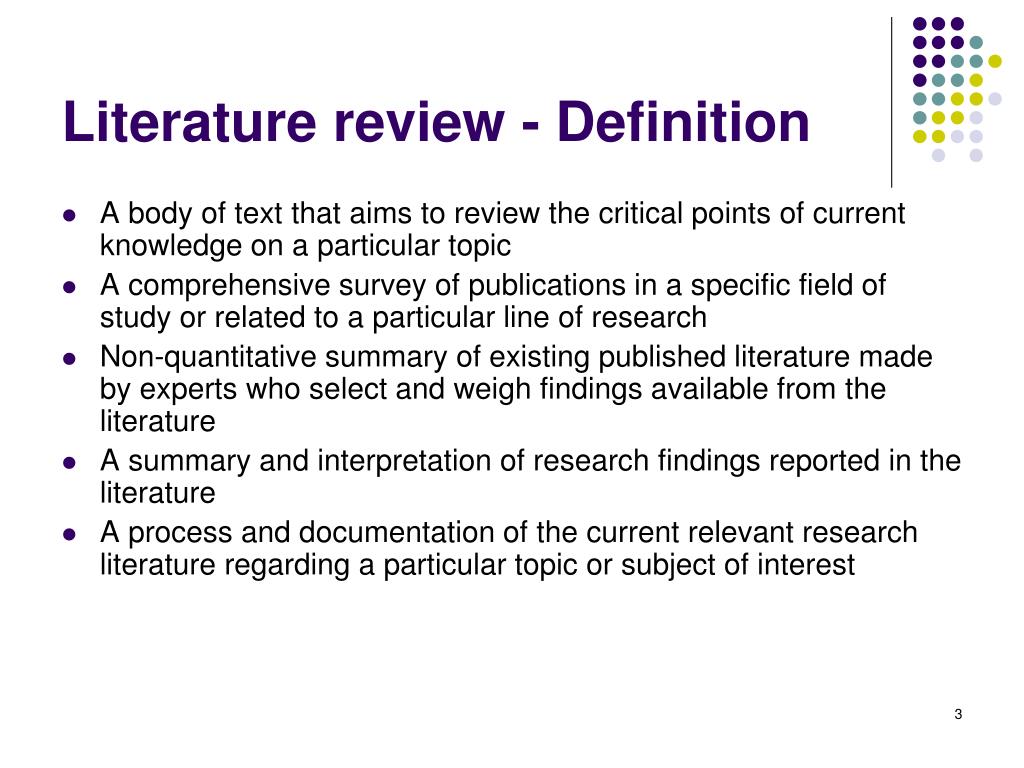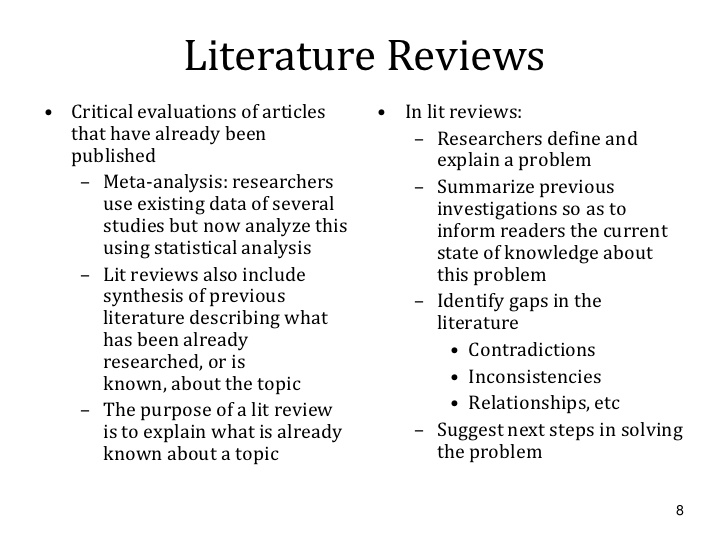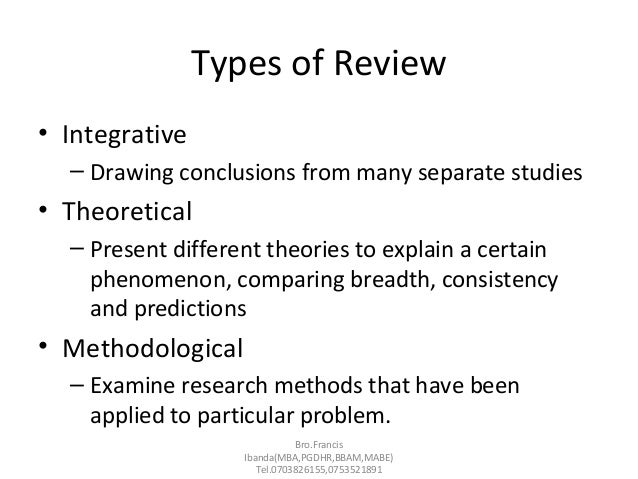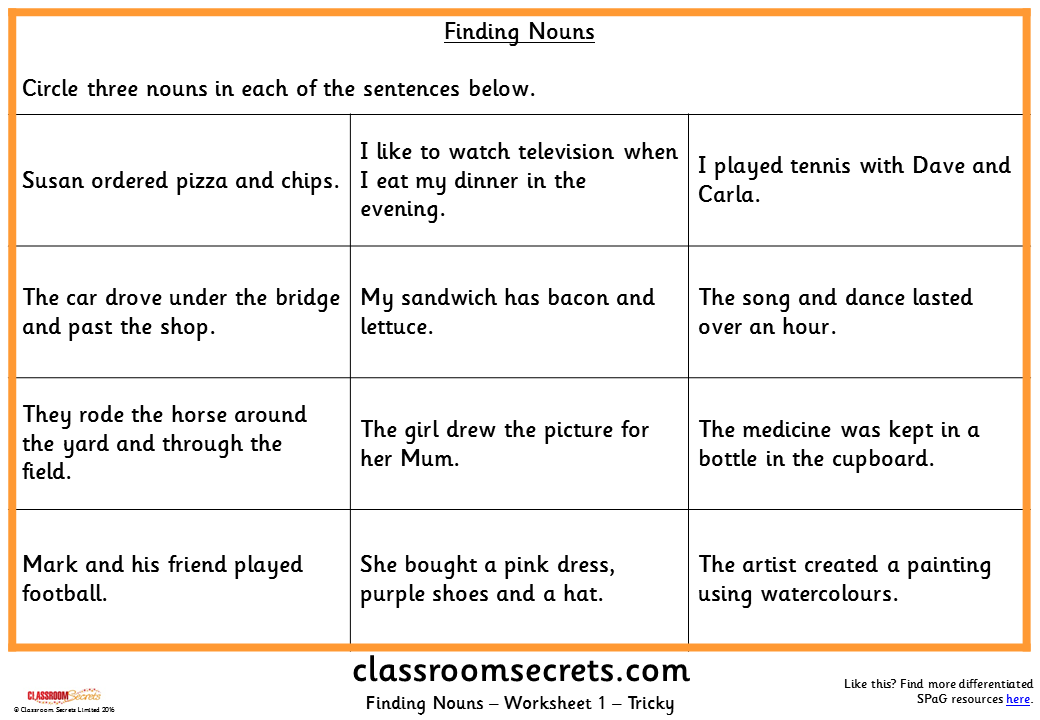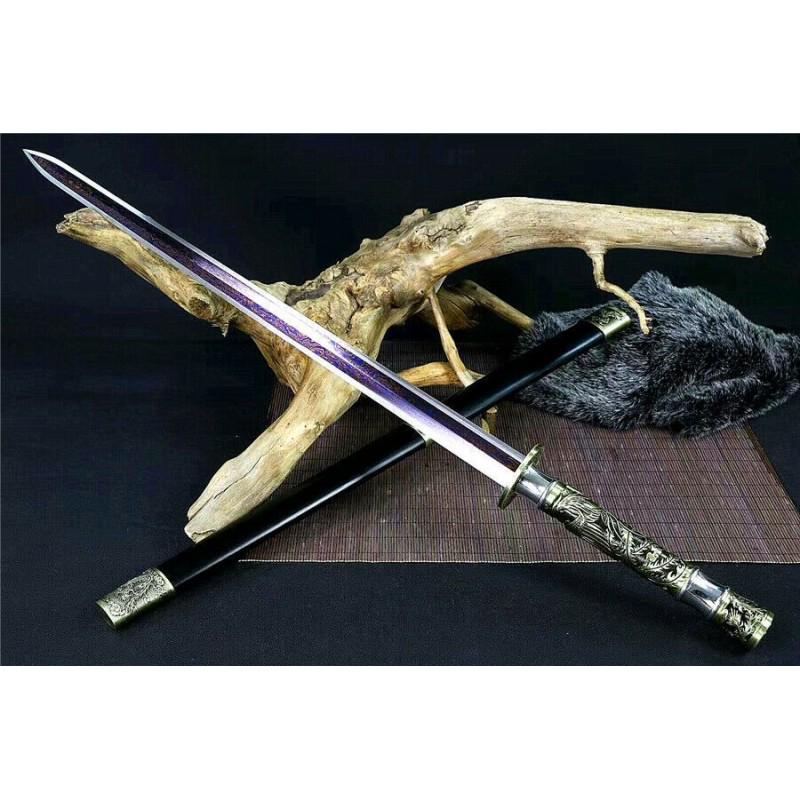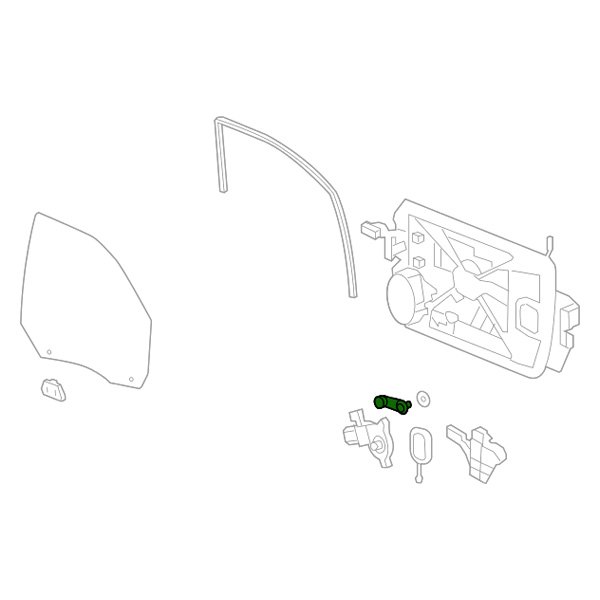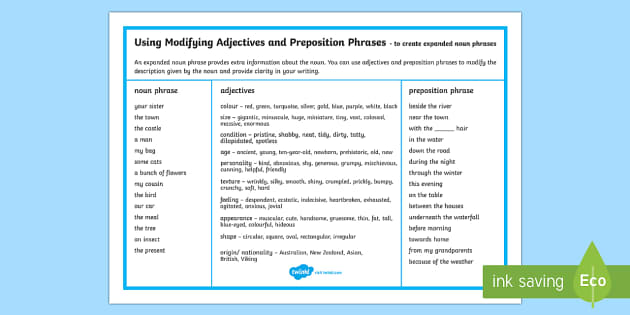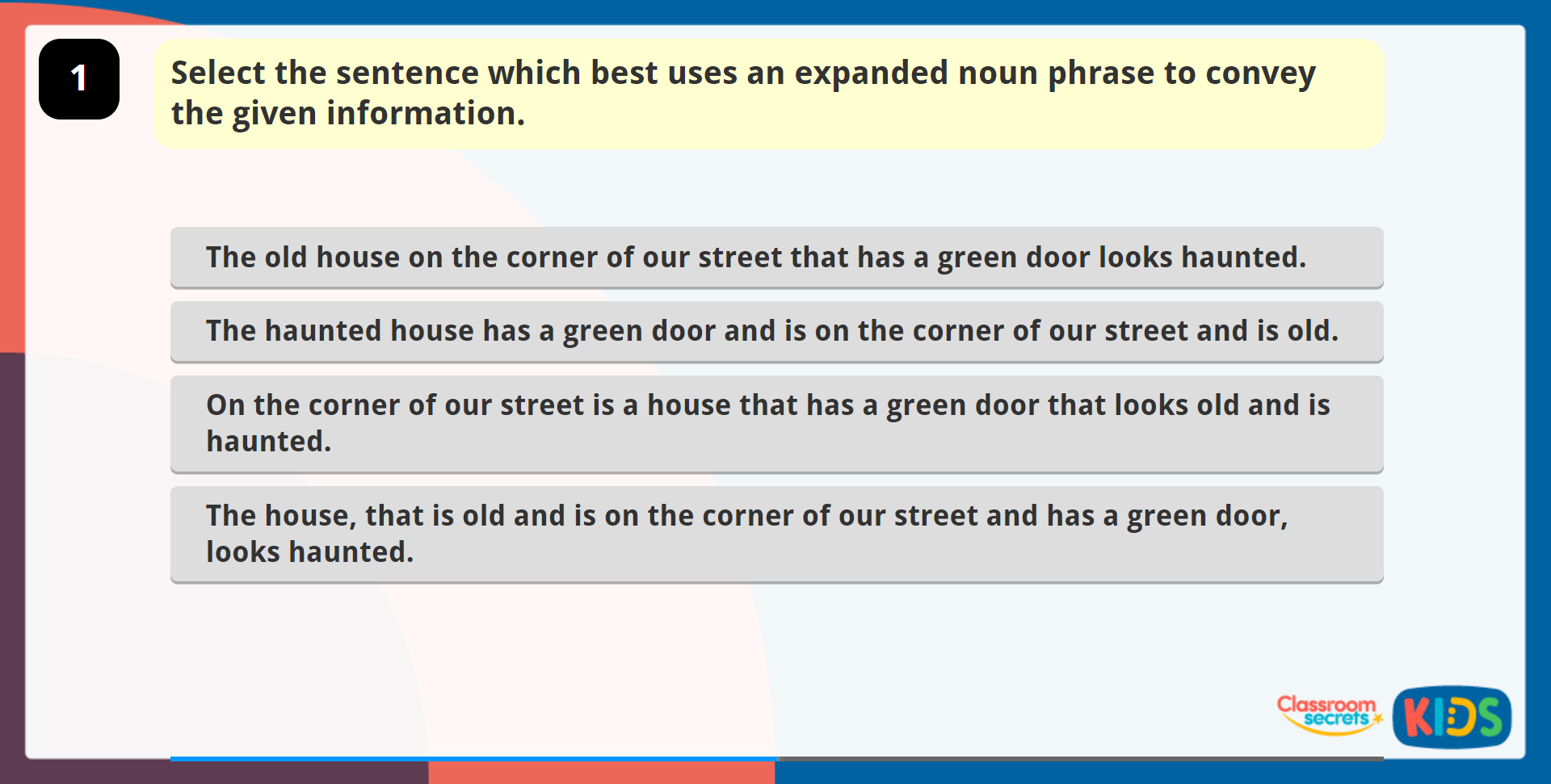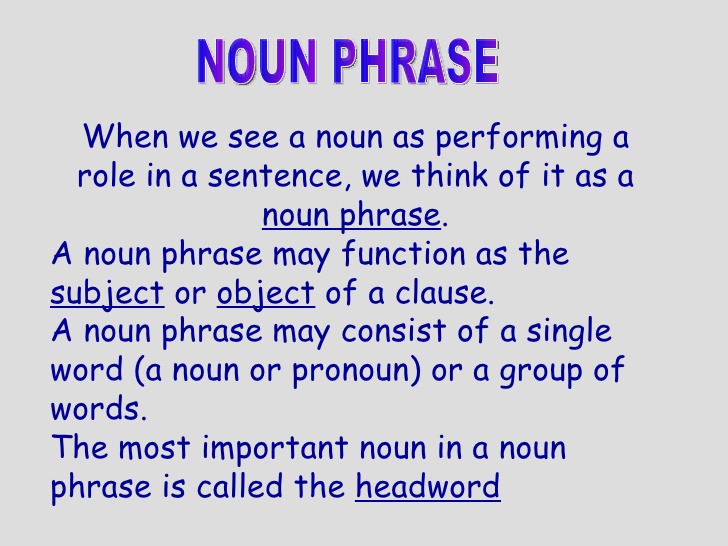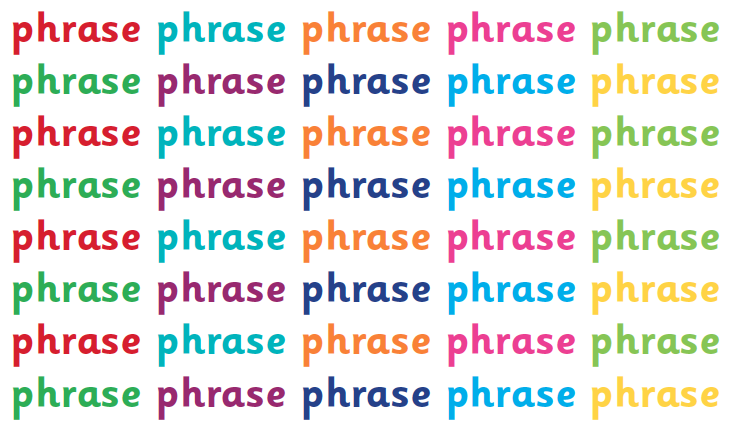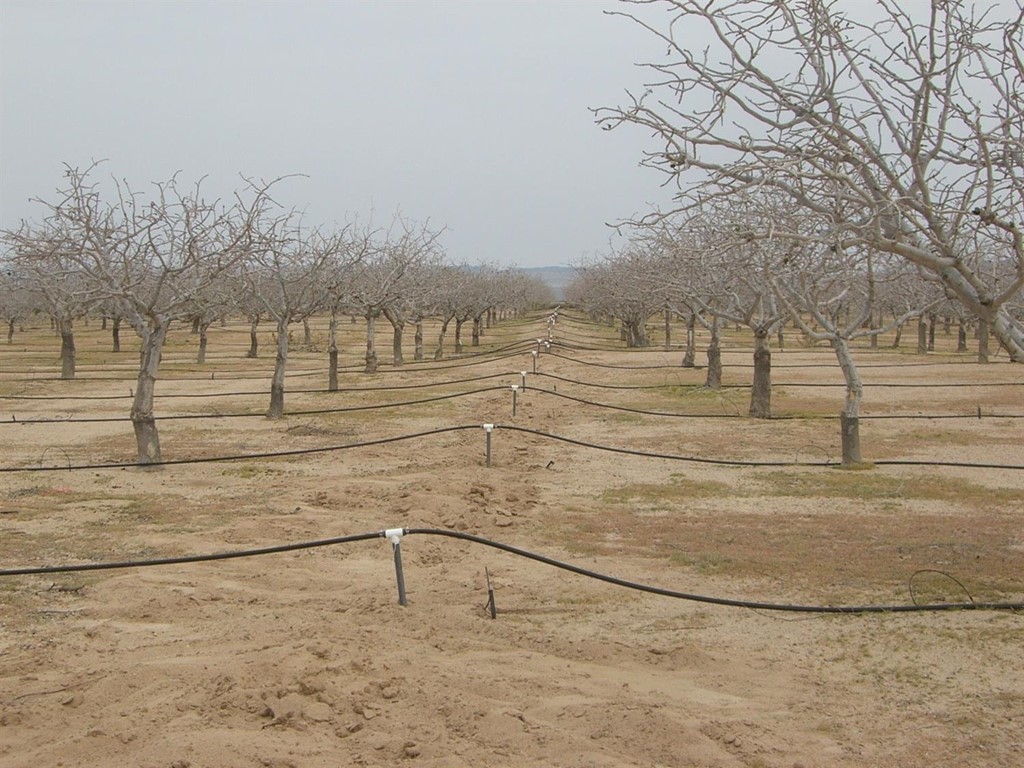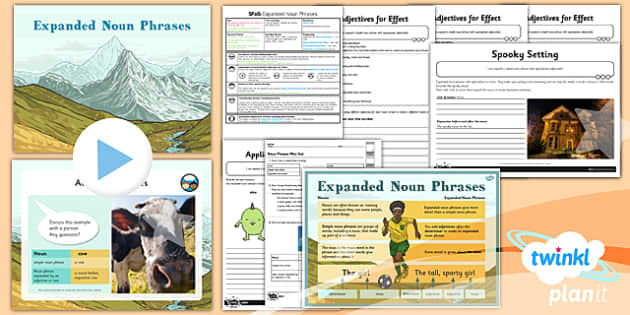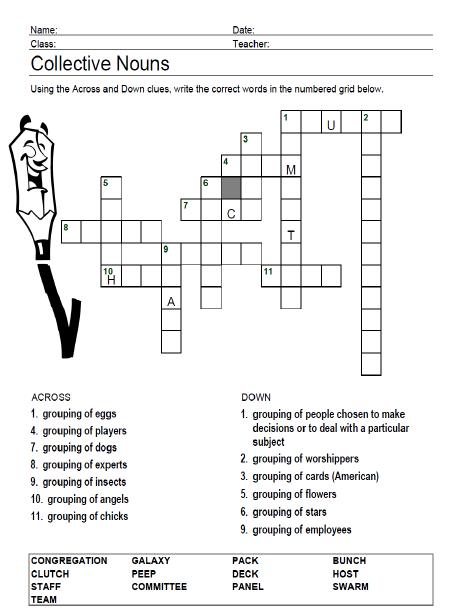'The literature' consists of the published works that document a scholarly conversation in a field of study. You will find, in 'the literature,' documents that explain the background of your topic so the reader knows where you found loose ends in the established research of the field and what led you to your own project. Once you have that essential overview, you delve into the seminal literature of the field. As a result, while your literature review may consist of research articles tightly focused on your topic with secondary and tertiary sources used more sparingly, all three types of information are critical to your research. A literature review is an overview of the previously published works on a specific topic.
The term can refer to a full scholarly paper or a section of a scholarly work such as a book, or an article. Either way, a literature review is supposed to provide the researcher/author and the audiences with a general image of the existing knowledge on the topic under question. A good literature review can ensure that a proper research question has been asked and a proper theoretical framework and/or research methodology have been chosen. To be precise, a literature review serves to situate the current study within the body of the relevant literature and to provide context for the reader. In such case, the review usually precedes the methodology and results sections of the work.
Narrative or Traditional literature reviews critique and summarise a body of literature about the thesis topic. The literature is researched from the relevant databases and is generally very selective in the material used. The criteria for literature selection for a narrative review is not always made open to the reader. These reviews are very useful in gathering and synthesising the literature located. Where a narrative approach differs from a systematic approach is in the notation of search methods criteria for selection,this can leave narrative reviews open to suggestions of bias.
Scholarly, academic, and scientific publications are a collections of articles written by scholars in an academic or professional field. Most journals are peer-reviewed or refereed, which means a panel of scholars reviews articles to decide if they should be accepted into a specific publication. Journal articles are the main source of information for researchers and for literature reviews.
You've decided to focus your literature review on materials dealing with sperm whales. This is because you've just finished reading Moby Dick, and you wonder if that whale's portrayal is really real. You start with some articles about the physiology of sperm whales in biology journals written in the 1980's. But these articles refer to some British biological studies performed on whales in the early 18th century. Literature refers to a collection of published information/materials on a particular area of research or topic, such as books and journal articles of academic value. However, your literature review does not need to be inclusive of every article and book that has been written on your topic because that will be too broad.
Rather, it should include the key sources related to the main debates, trends and gaps in your research area. Ideally, a literature review should not identify as a major research gap an issue that has just been addressed in a series of papers in press (the same applies, of course, to older, overlooked studies ("sleeping beauties" )). This implies that literature reviewers would do well to keep an eye on electronic lists of papers in press, given that it can take months before these appear in scientific databases. Assessing the contribution of papers that have just appeared is particularly challenging, because there is little perspective with which to gauge their significance and impact on further research and society.
Review Of Related Literature Meaning In English Literature search is a systematic and well-organised search from the already published data to identify a breadth of good quality references on a specific topic. The reasons for conducting literature search are numerous that include drawing information for making evidence-based guidelines, a step in the research method and as part of academic assessment. However, the main purpose of a thorough literature search is to formulate a research question by evaluating the available literature with an eye on gaps still amenable to further research. There are various methods of literature search that are used alone or in combination . With the advancement of technology, the Internet is now the gateway to the maze of vast medical literature. In addition, this type of literature review is usually much longer than the literature review introducing a study.
At the end of the review is a conclusion that once again explicitly ties all of these works together to show how this analysis is itself a contribution to the literature. While it is not necessary to include the terms "Literature Review" or "Review of the Literature" in the title, many literature reviews do indicate the type of article in their title. Whether or not that is necessary or appropriate can also depend on the specific author instructions of the target journal. Have a look at this article for more input on how to compile a stand-alone review article that is insightful and helpful for other researchers in your field. Some disciplines require that you use information that is as current as possible. In the sciences, for instance, treatments for medical problems are constantly changing according to the latest studies.
Try sorting through some other current bibliographies or literature reviews in the field to get a sense of what your discipline expects. You can also use this method to consider what is currently of interest to scholars in this field and what is not. Literature reviews provide you with a handy guide to a particular topic. If you have limited time to conduct research, literature reviews can give you an overview or act as a stepping stone. For professionals, they are useful reports that keep them up to date with what is current in the field.
For scholars, the depth and breadth of the literature review emphasizes the credibility of the writer in his or her field. Literature reviews also provide a solid background for a research paper's investigation. Comprehensive knowledge of the literature of the field is essential to most research papers. Each student and special committee will decide what work in foreign language is most appropriate for a student's graduate program and scholarly interests. Some students' doctoral programs require extensive knowledge of a single foreign language and literature; others require reading ability in two or more foreign languages. Several departments at Cornell offer pertinent courses in such subjects as descriptive linguistics, psycholinguistics and the philosophy of language.
Literature reviews are in great demand in most scientific fields. Their need stems from the ever-increasing output of scientific publications . For example, compared to 1991, in 2008 three, eight, and forty times more papers were indexed in Web of Science on malaria, obesity, and biodiversity, respectively .
Given such mountains of papers, scientists cannot be expected to examine in detail every single new paper relevant to their interests . Thus, it is both advantageous and necessary to rely on regular summaries of the recent literature. Although recognition for scientists mainly comes from primary research, timely literature reviews can lead to new synthetic insights and are often widely read . For such summaries to be useful, however, they need to be compiled in a professional way .
Acknowledgements -- scholarly studies in the social sciences often take many years to write, so authors frequently acknowledge the help and support of others in getting their research published. This can be as innocuous as acknowledging the author's family or the publisher. However, an author may acknowledge prominent scholars or subject experts, staff at key research centers, people who curate important archival collections, or organizations that funded the research.
In these particular cases, it may be worth noting these sources of support in your review, particularly if the funding organization is biased or its mission is to promote a particular agenda. Literature reviews exist within different types of scholarly works with varying foci and emphases. Short or miniature literature reviews can be presented in journal articles, book chapters, or coursework assignments to set the background for the research work and provide a general understanding of the research topic. Scholarly journals provider articles of interest to experts or researchers in a discipline. An editorial board of respected scholars reviews all articles submitted to a journal.
They decide if the article provides a noteworthy contribution to the field and should be published. Articles published in scholarly journals will include a list of references. 'The literature' is published in books, journal articles, conference proceedings, theses and dissertations.
It can also be found in newspapers, encyclopedias, textbooks, as well as websites and reports written by government agencies and professional organizations. While these formats may contain what we define as 'the literature', not all of it will be appropriate for inclusion in your own literature review. Pay particular attention to the author's concluding chapter and/or afterword. List the principal topics, and briefly summarize the author's ideas about these topics, main points, and conclusions.
If appropriate and to help clarify your overall evaluation, use specific references to text and quotations to support your statements. If your thesis has been well argued, the conclusion should follow naturally. It can include a final assessment or simply restate your thesis.
If you've compared the book to any other works or used other sources in writing the review, be sure to cite them at the end of your book review in the same writing style as your bibliographic heading of the book. However, there are three common mistakes that researchers make when including literature reviews in the discussion section. First, they mention all sorts of studies, some of which are not even relevant to the topic under investigation.
Second, instead of citing the original article, they cite a related article that mentions the original article. Lastly, some authors cite previous work solely based on the abstract, without even going through the entire paper. Finally, after you have finished drafting your literature review, be sure toreceive proofreading and language editing for your academic work. A competent proofread who understands academic writing conventions and the specific style guides used by academic journals will ensure that your paper is ready for publication in your target journal.
The more reviews one reads in the context of an article, the better one understands the specific demands for literature in a given study. Your hypothesis, argument, or guiding concept is the "golden thread" that will ultimately tie the works together and provide readers with specific insights they didn't have before reading your literature review. Look for other literature reviews in your area of interest or in the discipline and read them to get a sense of the types of themes you might want to look for in your own research or ways to organize your final review. You can simply put the word "review" in your search engine along with your other topic terms to find articles of this type on the Internet or in an electronic database.
The bibliography or reference section of sources you've already read are also excellent entry points into your own research. In a larger piece of written work, such as a dissertation or project, a literature review is usually one of the first tasks carried out after deciding on a topic. Reading combined with critical analysis can help to refine a topic and frame research questions.
A literature review establishes familiarity with and understanding of current research in a particular field before carrying out a new investigation. Conducting a literature review should enable you to find out what research has already been done and identify what is unknown within your topic. The literature review found at the beginning of a journal article is used to introduce research related to the specific study and is found in the Introduction section, usually near the end. It is shorter than a stand-alone review because it must limit its scope to very specific studies and theories that are directly relevant to this study.
Its purpose is to set research precedence and provide support for the study's theory, methods, results, and/or conclusions. Not all research articles contain an explicit review of the literature, but many do, whether it is a discrete section or indistinguishable from the rest of the Introduction. The two types of literature reviews commonly found in journals are those introducing research articles and stand-alone literature analyses. To illustrate the difference between reporting and reviewing, think about television or film review articles. These articles include content such as a brief synopsis or the key points of the film or programme plus the critic's own evaluation.
Similarly the two main objectives of a literature review are firstly the content covering existing research, theories and evidence, and secondly your own critical evaluation and discussion of this content. A meta-analysis is typically a systematic review using statistical methods to effectively combine the data used on all selected studies to produce a more reliable result. In this contribution, I share ten simple rules I learned working on about 25 literature reviews as a PhD and postdoctoral student.
Ideas and insights also come from discussions with coauthors and colleagues, as well as feedback from reviewers and editors. Literature search is a key step in performing good authentic research. It helps in formulating a research question and planning the study. The available published data are enormous; therefore, choosing the appropriate articles relevant to your study in question is an art. It can be time-consuming, tiring and can lead to disinterest or even abandonment of search in between if not carried out in a step-wise manner.
Various databases are available for performing literature search. This article primarily stresses on how to formulate a research question, the various types and sources for literature search, which will help make your search specific and time-saving. A degree in English language and literature is designed to get you reading books, analyzing theories, critiquing prose and verse, and taking a more critical look at the signs and words surrounding us every day. The aim is to get students thinking creatively and analytically about the English language; this differs from other modern language degrees as it is intended for students already proficient in written and spoken English.
AnEnglish degree canfocus equally on the literature and language sides, while others specialize in one or the other; this will usually be clear from the course title. These literature reviews are generally a bit broader in scope and can extend further back in time. This means that sometimes a scientific literature review can be highly theoretical, in addition to focusing on specific methods and outcomes of previous studies. In addition, all of its sections refer to the literature rather than detailing a current study. The literature review published as its own article presents and analyzes as many of the important texts in an area of study as possible to provide background information and context for a current area of research or a study.
Stand-alone reviews are an excellent resource for researchers when they are first searching for the most relevant information on an area of study. A literature review, like a term paper, is usually organized around ideas, not the sources themselves as an annotated bibliography would be organized. This means that you will not just simply list your sources and go into detail about each one of them, one at a time.
As you read widely but selectively in your topic area, consider instead what themes or issues connect your sources together. How well do they present the material and do they portray it according to an appropriate theory? Pick one of these themes to focus the organization of your review. The "literature" of a literature review refers to any collection of materials on a topic, not necessarily the great literary texts of the world. "Literature" could be anything from a set of government pamphlets on British colonial methods in Africa to scholarly articles on the treatment of a torn ACL.
And a review does not necessarily mean that your reader wants you to give your personal opinion on whether or not you liked these sources. A literature review is a survey of scholarly sources on a specific topic. It provides an overview of current knowledge, allowing you to identify relevant theories, methods, and gaps in the existing research.




